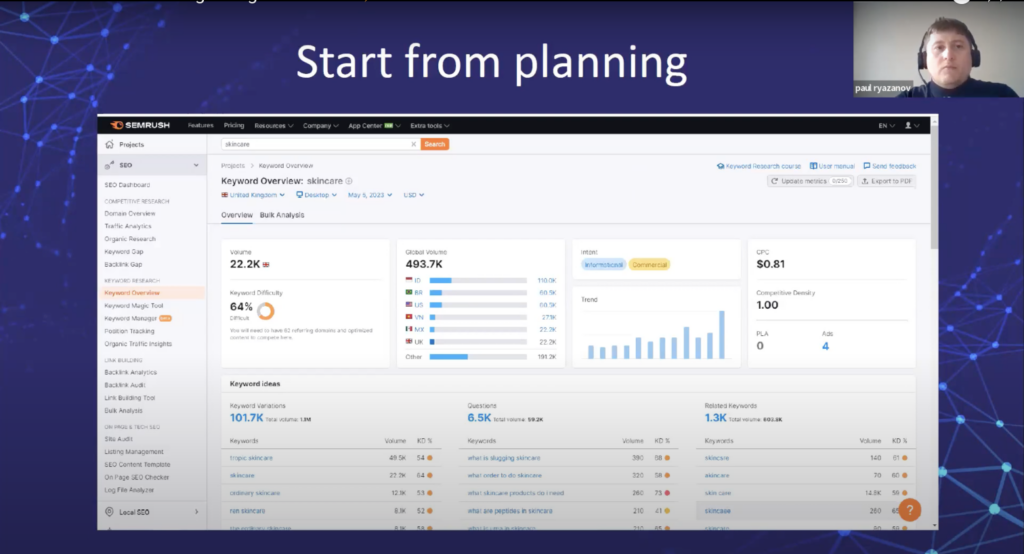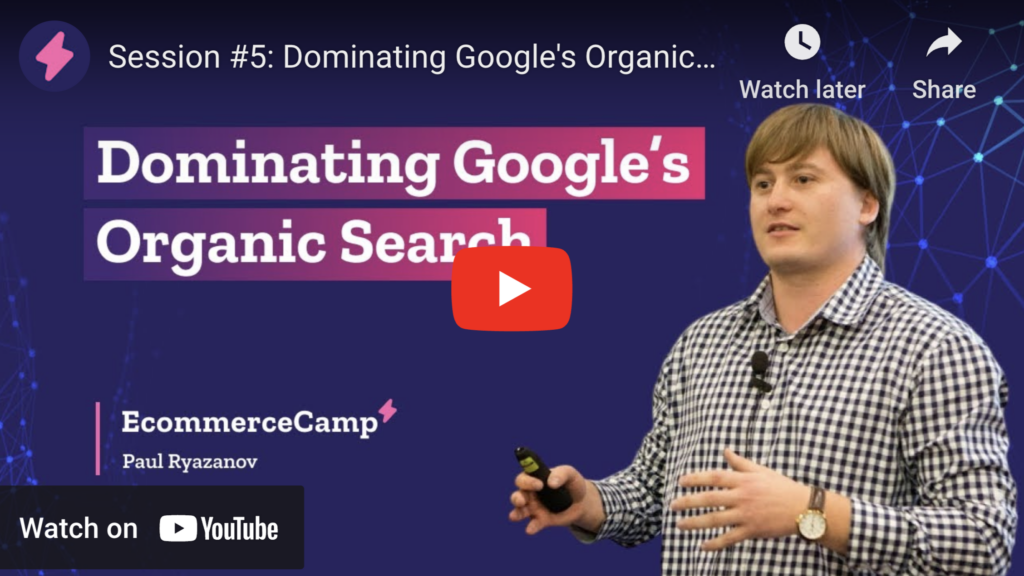Welcome to Ecommerce Camp, where today’s topic is Dominating Google’s Organic Search.

Many clients express apprehension about taking certain steps themselves due to the fear of potential penalties from Google, which could adversely affect their website.
I do have some clients who are paying 5K–10K for SEO. Again, there is nothing wrong with the pricing; it’s more about you as a business owner.
Google Organic: Step 1. Planning
I would say that before you even start viewing the website, you have to start planning.

Typically, the starting point for SEO involves conducting keyword research.
There are several tools I’d personally recommend, such as:
While there are various tools available, they essentially perform similar functions. I’m not trying to endorse any specific tool, but I use SEMrush, and many of my colleagues prefer Ahrefs.
Let me simplify the process for you. The first step is keyword research. You can obtain a package from a tool like SEMrush, for instance.
- Enter your desired keywords, conduct a search, and filter the results to gather essential information. This includes data on monthly search volumes and keyword difficulty.
For instance, in SEMrush, there’s a feature called “Keyword Magic Tool,” which consolidates related keywords. This can help you understand search volumes and compile this information into an accessible spreadsheet. - Next, analyze the keyword difficulty, which essentially indicates how competitive these keywords are. This step is crucial in determining which keywords to target for optimal results.
When you export this data into an Excel spreadsheet, it becomes easier to discern which keywords might be simpler or more challenging to rank for. By compiling this information, you can estimate the potential organic traffic for your business. It’s important to note that without a specific website in focus, it’s challenging for me to provide precise details, but this is generally the primary approach. - Once you’ve gathered this data, you’ll have a wealth of information on traffic volumes. Next, align this information with your website’s structure. Consider which sections of your site you need to develop and how you plan to build them.
For instance, let’s take the example of “leggings.”
If you’re targeting the keyword “leggings,” it’s crucial to understand the user intent behind this search term. Users searching for “leggings” could be seeking product pages, articles on styling tips, or even information about materials used in leggings.Therefore, structuring your website’s content to cater to these varied intents is vital.
For instance, creating specific sections like “Leggings Collection,” “How to Style Leggings,” and “Leggings Fabric Guide” could be strategic. Crafting content that aligns with user intent around the keyword “leggings” will enhance your site’s relevance and appeal to a broader audience.
Understanding user behavior and intent behind specific keywords is key to structuring your website effectively and targeting the right audience segments. This strategic approach will significantly contribute to your SEO success.
NOTE:
This is a script of our in-depth webinar with Paul Ryazanov, covering key SEO strategies and insights needed to dominate Google’s organic search.
To further assist you, we’ve made accessing this valuable resource simple. You can easily view the full video recording:

Need Specific, Targeted Advice For Your Store?
Whether you’re embarking on your first steps into the world of e-commerce or already running an established business, don’t hesitate to contact us. Our dedicated team is here to provide unwavering support and assistance throughout your entire journey.




